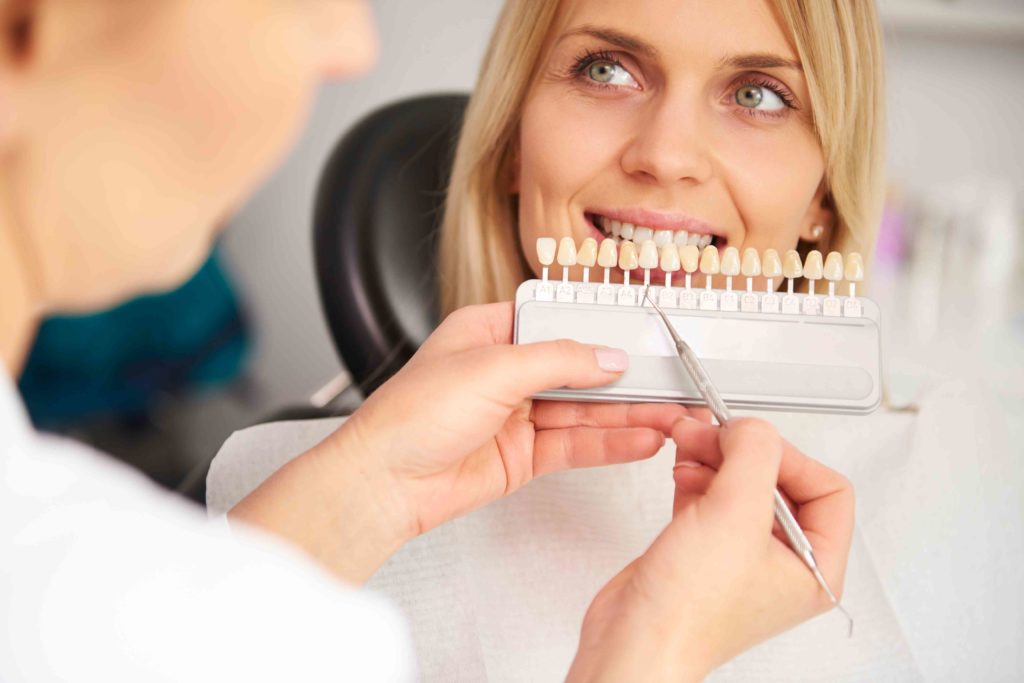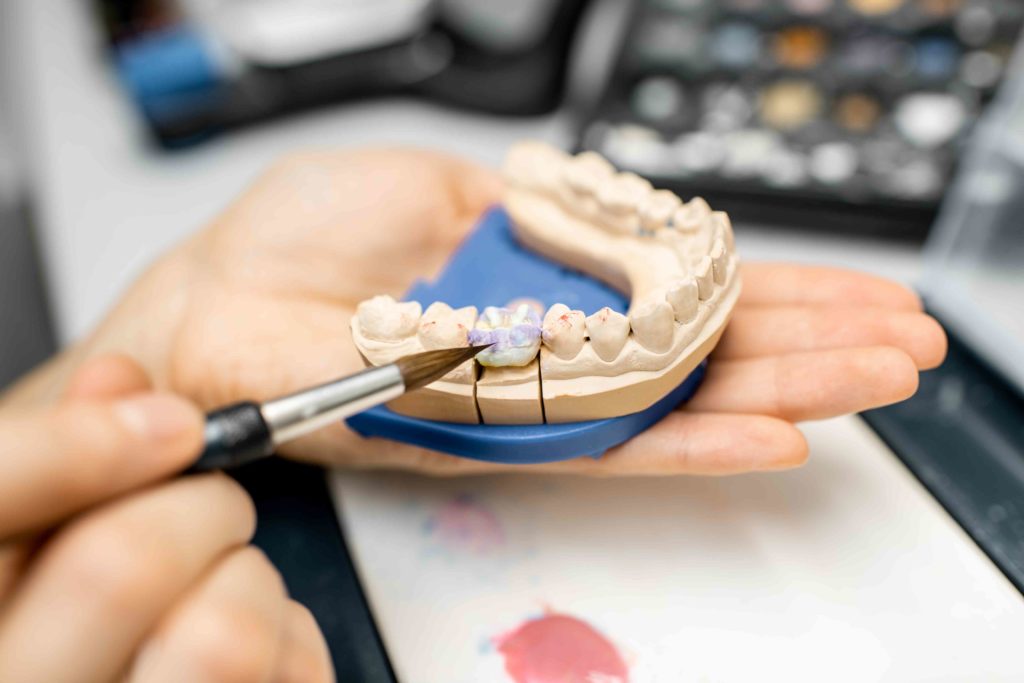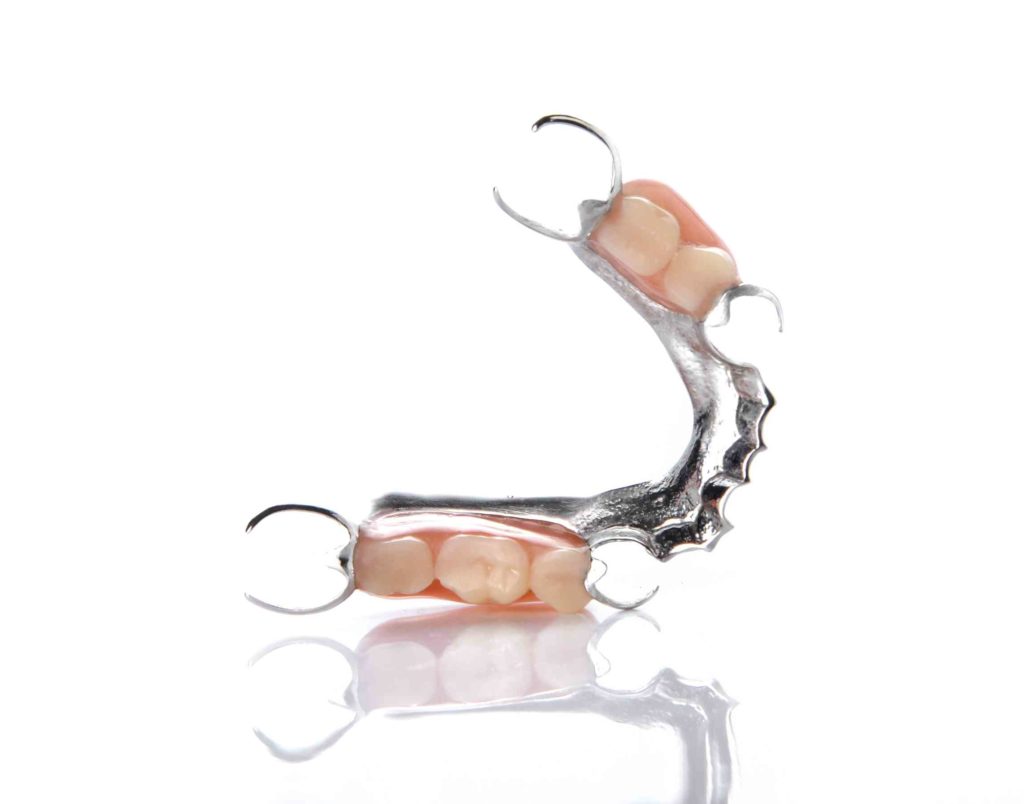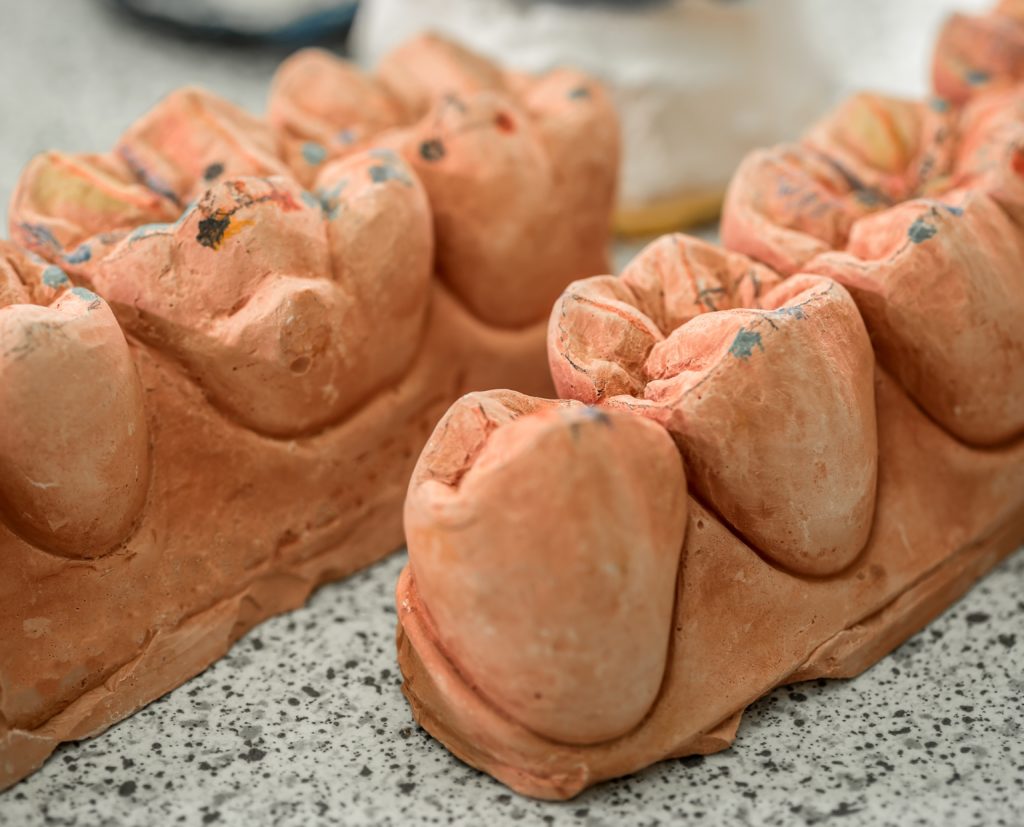What Is Cosmetic Dentistry?
Cosmetic dentistry is the field of dentistry that involves smile makeovers. Numerous procedures are a part of cosmetic dentistry – all of which correct diverse issues that make people feel unhappy and discontent with their smile.
The procedures included in cosmetic dentistry are usually optional. Some of them might be a necessity to correct issues with bite, for example – tooth replacement. The treatments are performed by cosmetic dentists.
What Does Cosmetic Dentistry Entail?
Cosmetic dentistry focuses more on the aesthetic value of your smile rather than the functional one. While functional benefits are a perk, they aren’t necessarily the blueprint. Some of the popular treatments a cosmetic dentist is asked for are –
Teeth Whitening

Possibly the easiest way to improve that smile of yours. Teeth whitening is done by a professional, aka a cosmetic dentist guarantees a brighter, more radiant smile.
Over-the-counter whitening options, while greatly popular, aren’t as effective as in-office bleaching. The former options include teeth whitening toothpaste, oral strips, oral rinses, etc.
You also have the option of take-home kits. These consist of custom trays and prepacked bleaching agents that are available at the cosmetic dentist’s office. As suggested by the name, you take these kits home and whiten your teeth as explained by your cosmetic dentist.
While you might not yield the desired results on using once, the take-home kits considerably whiten your teeth over a period.
Dental Bonding
Also known as composite bonding or tooth bonding, this is one of the simpler cosmetic dentistry procedures. Dental bonding involves changing the color, shape, and size of a tooth. It is also helps to fill gaps such as those between teeth and small cavities.
The dentist molds a plastic, putty-like material on the tooth, with a proper shape, and finally set with the help of UV light. Composite is a tooth-colored material that makes it incredibly aesthetic. Your cosmetic dentist will always shade match the color of the material to your natural tooth before initiating the bonding procedure.
Dental Veneers
Fabricated from medical-grade ceramic, dental veneers are an immensely popular cosmetic dentistry procedure. In this, the front teeth are fixed by shaving the natural tooth down and topped off with a tooth-colored custom shell. These shells are wafer-thin and incredibly aesthetic.
Popular as “Hollywood teeth”, veneers fix a person’s smile by focusing on making the front teeth attractive.
Veneers help take care of chips, breaks, gaps, stains, and discrepancies in the size and shape of the front teeth.
Dental Implants
Everyone who is anyone has heard of dental implants. The treatment of choice for tooth replacement, implants have a cult-like following for multiple reasons.
Aside from the fact that they resemble and feel like natural teeth, dental implants are permanent. They remain fixed to the jaw bone and with proper care, can last a lifetime without any issues.
However, the checklist to opt for a dental implant is pretty specific. People who suffer from conditions like diabetes, cardiac issues, etc. aren’t advised dental implants. Similarly, smokers and people who fail to care for their oral health are not recommended implants.
How Safe Is Cosmetic Dentistry?

Similar to any other treatment in the field of dentistry, the procedures involved in cosmetic dentistry have their own set of risks. As mentioned earlier, the goal of cosmetic dentistry is mainly aesthetic. Most of the procedures aren’t permanent, barring some exceptions.
Risks Associated With Cosmetic Dentistry Procedures
Dental veneers, crowns, and bridges involve cutting down healthy teeth. There is no going back from this since the tooth enamel doesn’t grow back. The risks associated with these are increased sensitivity, an increased risk of caries, and root canal infections. So you have to be sure that this is something you want before you decide to go ahead with it.
Teeth bleaching or whitening also carries the risk of sensitivity. And while the side effect is pretty common, it usually resolves over time. Additionally, since the bleaching agents used in this treatment are pretty strong, you’re much safer letting the professionals handle it.
As long as you choose qualified experts to deal with your dental care such as the amazing staff at Le Sueur Family Dental, you’re in safe hands.
Are Dental X-rays Safe And Needed?
Dental X-rays play a significant role in assessing your dental health. X-rays involve low levels of radiation that help capture the internal images of your teeth and gums. They are an important diagnostic tool and help in identifying problems such as –
- Cavity or cavities
- Tooth or teeth decay
- Impacted teeth
- Bone health
Even in cosmetic dentistry, your cosmetic dentist will advise a dental x-ray to evaluate the state of your dental health. This is imperative before performing any procedure.
Even though a dental X-ray involves radiation, the exposure levels are pretty low. Which makes them extremely safe for both children and adults. If your cosmetic dentist uses digital X-rays, it lowers your risk.
It also protects the patients with the placement of lead “bibs” to prevent any unnecessary exposure to the other parts of your body.
The only scenario where an X-ray is never advised is if the patient is pregnant. This is because radiation is considered unsafe for developing fetuses. Inform your cosmetic dentist if you think you are pregnant.
Do Mouthguards Prevent Dental Injuries?

What Are Mouthguards?
Mouthguards are a kind of appliance or coverings worn in the mouth over the teeth. These protect teeth and other oral structures from injury or trauma.
Do Mouthguards Prevent Dental Injuries?
Mouthguards are popularly used during sports to block the teeth from chipping or breaking. Trauma to the face can lead to broken or cracked teeth. Sometimes, teeth may also fall out due to excessive force. These injuries can be excruciatingly painful. Mouthguards help prevent these injuries.
However, these can cause cuts and abrasions in the mouth, along with a chance of infection. This is why they should be sanitized regularly. Furthermore, mouthguards should be replaced when they develop jagged or sharp edges or every two weeks, whichever happens first.
For further information on any of the above topics, particularly cosmetic dentistry, get in touch with the amazing team at Le Sueur Family Dental. Call us at (507) 665-6812 to schedule a meeting with our experts.


